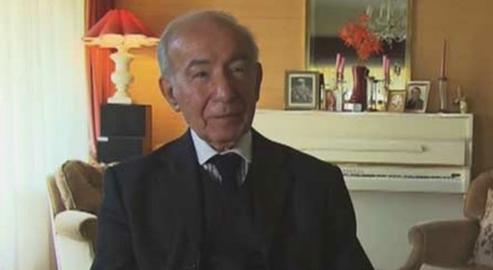Dr. Shapour Rassekh, a distinguished professor of sociology at the University of Tehran before the 1979 Islamic Revolution, a pioneer of quantitative surveying in the country, a UNESCO consultant and author of numbers books and articles on sociology, economics and education, passed away at the age of 97 at 9am on December 7 in Geneva, Switzerland.
Born in 1924 to a Baha'i family in Tehran, he completed his primary and secondary school and university education in the capital, earning his bachelor's degree in economics and a doctorate in Persian literature from the University of Tehran.
Dr. Rassekh was involved in serving his community and Iranian society from a young age. His writings also show that global integration and international cooperation, in the pursuit of social justice and a lasting world peace, were also close to his heart. But Iran and Iranians held a unique place for Dr. Rassekh and his interest in Iran's economic, social and educational growth and development can be seen across his published articles, lectures and books, including in journals such as Sokhan magazine, and the journal Rahnamaye Ketab.
Dr. Rassekh pursued further academic training in Switzerland, in the social sciences, and in 1958 received a second doctorate with honors from the University of Geneva. He was a top student of Jean Piaget, a prominent Swiss psychologist, and later, at the Sorbonne in Paris, France, he was again one of the top students studying under the sociologist Georges Gurvitch.
His doctoral dissertation, “Bias between Human Groups, a Study from the Perspective of Social Psychology,” reflected his vision of a peaceful and equal world.
Dr. Rassekh taught social sciences at the University of Tehran from 1958 to 1977. His textbooks, Introduction to Sociology of Iran, and Education in Today's World, were written during this period. Five decades later they are both still considered classics in their fields.
More than five decades after its first publication, these two books are still considered classic and academic works in Iran. Education in Today’s World is used by Dr. Mostafa Malekian in his classes on the philosophy of education.
Dr. Rassekh also served in national administrative roles. He served for almost a decade as director of Iran’s Planning and Budget Organization and was director of the Statistics Center from 1969 to 1972.
He also attended international conferences on behalf of Iran – one of these being the 1975 First International Conference on Women in Mexico City where he was elected chair of one of the two main panels. Dr. Rassekh also attended the First International Conference on the Environment in Sweden, the First International Conference on Labor and Employment in Geneva, the International Conference on Social Development in Copenhagen, and several other conferences, at both the international and Asian levels.
From 1971 to 2006 Dr. Rassekh also served as a UNESCO consultant on educational and published three books for the UN agency: The Contents of Education : A worldwide View of Their Development from the Present to the Year 2000 (1987, in French and English), A Look at Literacy (1991, in French and English) and, Education et Culture de la Paix (1996, in French).
The Revolution in 1979 forced Dr. Rassekh, like many other Baha'is, to leave Iran. He and his wife Mehry resettled in Geneva and he continued to work with UNESCO. Dr. Rassekh also took on roles at the International Bureau of Education, in Geneva and Paris, and on behalf of this institute prepared several monograph research projects, including on education in Oman, Kuwait and the Seychelles.
Despite more than 40 years away from Iran, Dr. Rassekh never abandoned his work on behalf of Iranians, publishing articles in Persian language journals and lecturing at Persian conferences in Europe and the United States. He also edited the Baha’i journal Payam-i-Baha’i which was a major source of information for Iranian Baha’is living around the world.
Dr. Rassekh was one of the founders of the Association of Persian Arts and Culture, in Europe, which holds annual meetings every year.
The World Needs a Global Civilization, Hopes and Promises, the book of poetry The Passing Hymn, Abdu’l-Baha Abbas: The Preacher of Peace in the Western World, and The Radius of the Enlightening World are among the books written and by Dr. Shapour Rassekh, in Persian, and published outside Iran over the last decade.
visit the accountability section
In this section of Iran Wire, you can contact the officials and launch your campaign for various problems


























comments